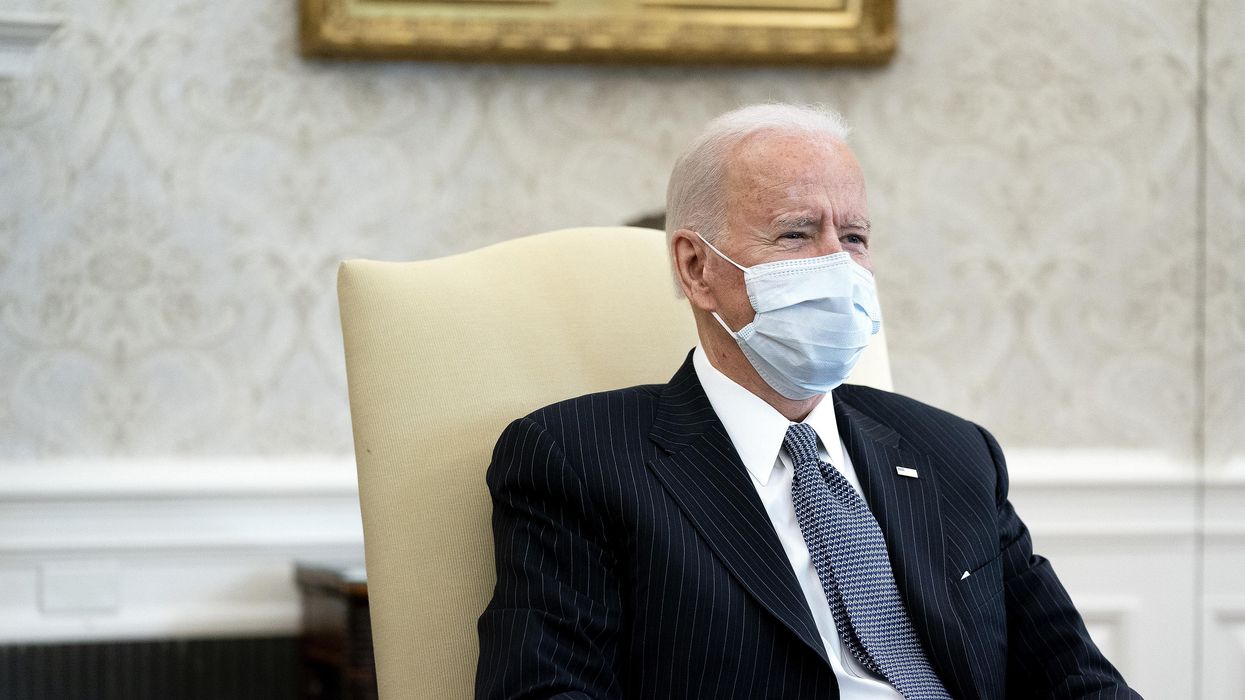While ample attention remains on the most frontal of Donald Trump's assaults on our democracy — his role in the Capitol riot that has led to his looming impeachment trial — the Biden administration has started to tackle some of its predecessor's less public upending of governing norms.
The latest moves were revealed without fanfare Wednesday. The Justice Department rescinded two policies instituted in the weeks after the election, designed to give the defeated president extraordinary support as he promulgated his campaign of lies claiming flawed election rules and rampant cheating had robbed him of a rightful second term.
The reversals came as President Biden professed his strongest support yet for conducting the Senate impeachment trial, saying to do otherwise would be "farcical," and a panel of election law experts declared that simple math proved there was "no evidence" to support the Trump crusade.
Monty Wilkinson, a career civil servant who is the acting attorney general until the confirmation of Merrick Garland, rescinded two directives issued by Attorney General William Barr near the end of his tenure.
One, issued a week after Election Day as Trump was escalating his baseless claims of a stolen victory, repealed decades-old policies of restraint for field offices across the country investigating allegations of ballot fraud — allowing them, for example, to bypass such procedural steps as getting permission from Justice Department headquarters before interviewing witnesses.
The point of the longstanding policy was for the government to stay out of the way so states could conduct their vote certification processes.
Barr's move prompted his chief election law prosecutor, Richard Pilger, to resign. Fifteen of his career lawyers then urged Barr to revert to previous the status quo, saying the policy change was "was not based on fact" and "thrusts career prosecutors into partisan politics."
The other directive abandoned Wednesday was the last Barr signed before leaving office in December.
By that point he had infuriated Trump by telling the nation his department had found no evidence of election fraud or other irregularities significant enough to come close to changing the outcome in any state. But Barr told the Civil Rights Division to leave states alone if they decided to reimpose strict rules for absentee or early voting that had been relaxed because of the Covid-19 pandemic.
"A change in voting laws or procedures by a state or local jurisdiction which readopts prior laws or procedures shall be presumed lawful unless the prior regime was found to be unlawful," he declared.
Because that policy is now abandoned, it could make it more difficult for states to withstand lawsuits alleging the reimposition of voter suppression statutes. Republicans in charge of the General Assembly in newly purple Georgia are moving to do so most prominently, but the Brennan Center for Justice has tabulated 106 bills in 28 states designed to make access to the plls more difficult than in 220 — a huge increase from a year ago.
Meanwhile, a paper circulated Wednesday by three election scholars — Andrew Eggers of the University of Chicago and Haritz Garro and Justin Grimmer of the Democracy and Polarization Lab at Stanford — cited an ocean of calculations to debunk the efforts of Trump and his loyalists to discredit the election with statistics suggesting foul play.
"Reviewing the most prominent of these statistical claims, we conclude that none of them is even remotely convincing," they said. "The common logic behind these claims is that, if the election were fairly conducted, some feature of the observed 2020 election result would be unlikely or impossible. In each case, we find that the purportedly anomalous fact is either not a fact or not anomalous."
Nonetheless, Trump pointed to these and other specious allegations time and again after the election — culminating in his Jan. 6 speech exhorting allies to head to the Capitol to disrupt the counting of the electoral votes. Six people died in the ensuing riot, and a week later the House impeached him for inciting the insurrection.
The Senate trial of that charge is set to start Tuesday, with Trump's lawyers arguing the proceedings are unconstitutional now that Trump has left office. The consequences of conviction, which would require the highly unlikely support of at last 17 Republcian senators, is that Trump would be barred from a presidential comeback.
Canceling the trial would "make a mockery of the system," Biden said in an interview with People published Wednesday. "He was impeached by the House and it has to move forward, otherwise it would come off as farcical what this was all about."




















Trump & Hegseth gave Mark Kelly a huge 2028 gift